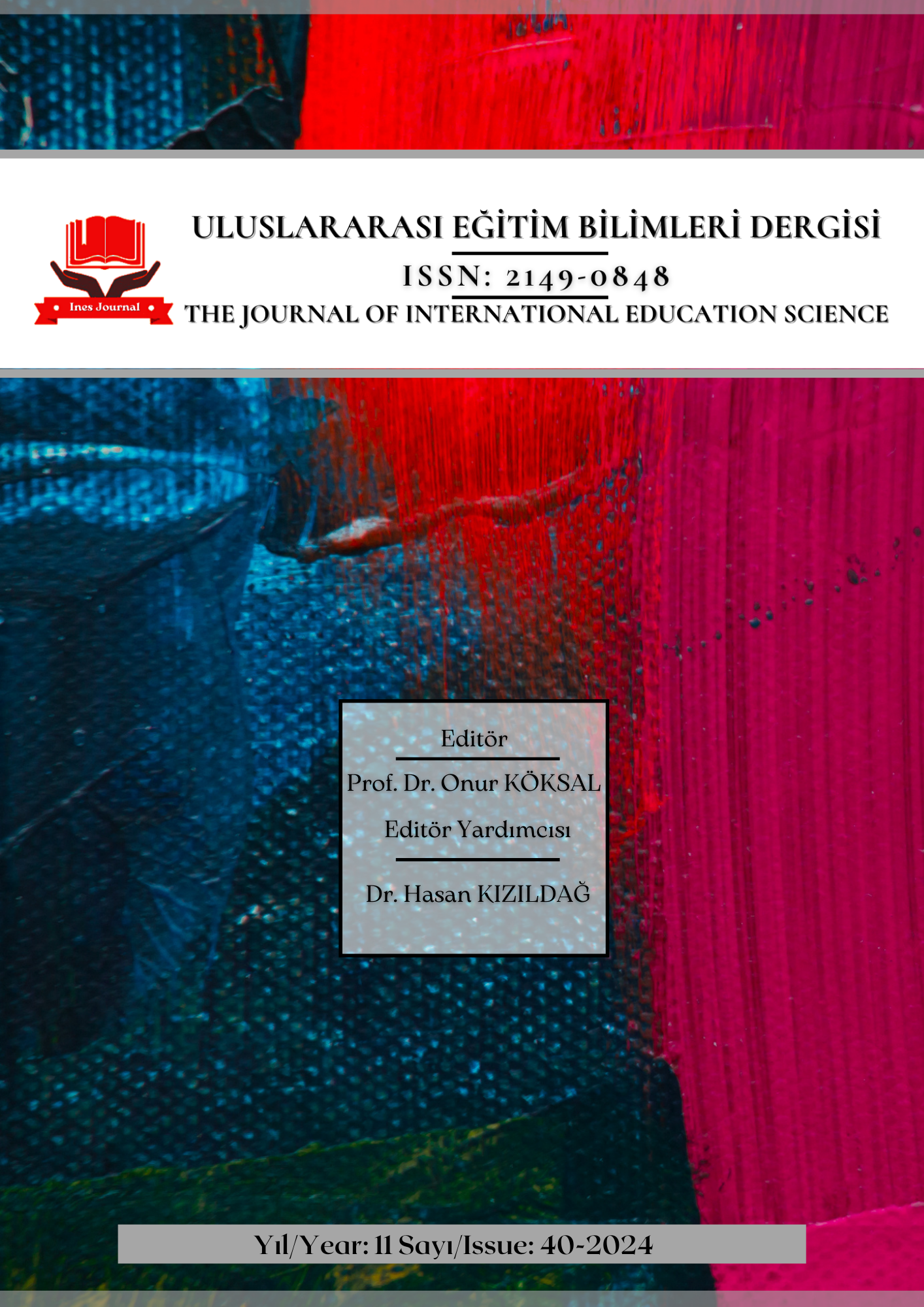4.Sınıf Sosyal Bilgiler Dersinde Kullanılan Zekâ Oyunlarının Öğrencilerin Akademik Başarılarına ve Tutumlarına Etkisi
Author :
Abstract
Zekâ oyunları 2013 yılında seçmeli bir ders olarak programa alınmıştır. Araştırmanın amacı, zekâ oyunlarının 4.sınıf sosyal bilgiler dersinde öğrencilerin akademik başarılarına etkisinin ve 4.sınıf öğrencilerinin zekâ oyunlarına karşı tutumlarının belirlenmesidir. Araştırma Elazığ ili merkez ilçesinde bulunan Şehit Musa Yılmaz İlkokulu 4.sınıflarında öğrenim görmeye devam eden öğrenciler ile yapılmıştır. Araştırmanın çalışma grubu uygun örnekleme yöntemi ile belirlenmiştir. Deney grubu ve kontrol grubu toplam 58 öğrenciden oluşmaktadır. Araştırmada nicel araştırma yöntemlerinden yarı deneysel desen kullanılarak ön test- son test ile deney ve kontrol grupları incelenerek neden-sonuç ilişkisi ortaya koyulmuştur. Veri toplama aracı olarak akademik başarı testi ve zekâ oyunlarına yönelik tutum ölçeği kullanılmıştır. Elde edilen bulgulara göre; zekâ oyunlarının 4.sınıf öğrencilerinin sosyal bilgiler dersi kapsamında akademik başarılarının artmasında etkili olduğu, zekâ oyunları tutum ölçeği bulgularına göre zekâ oyunlarını ders sürecinde kullanan öğrencilerin tutumlarında pozitif yönde ilerleme olduğu sonucuna ulaşılmıştır. Araştırma sonucuna göre sosyal bilgiler dersinde zekâ oyunlarına yer verilmesi önerilmektedir.
Keywords
Abstract
Mind games were included in the program as an elective course in 2013. The aim of the research is to determine the effect of mind games on the academic achievement of students in the 4th grade social studies course and the attitudes of 4th grade students towards mind games. The research was conducted with students who continue their education in the 4th grade of Şehit Musa Yılmaz Primary School, located in the central district of Elazığ province. The study group of the research was determined by the appropriate sampling method. The experimental group and control group consist of a total of 58 students. The research used quasi-experimental design, one of the quantitative research methods, and the cause-effect relationship was revealed by examining the experimental and control groups with pre-test-post-test. Academic achievement test and attitude scale towards intelligence games were used as data collection tools. According to the findings; It has been concluded that mind games are effective in increasing the academic success of 4th grade students within the scope of social studies course, and according to the findings of the mind games attitude scale, there is a positive progress in the attitudes of students who use mind games during the lesson. According to the results of the research, it is recommended to include mind games in social studies lessons.





